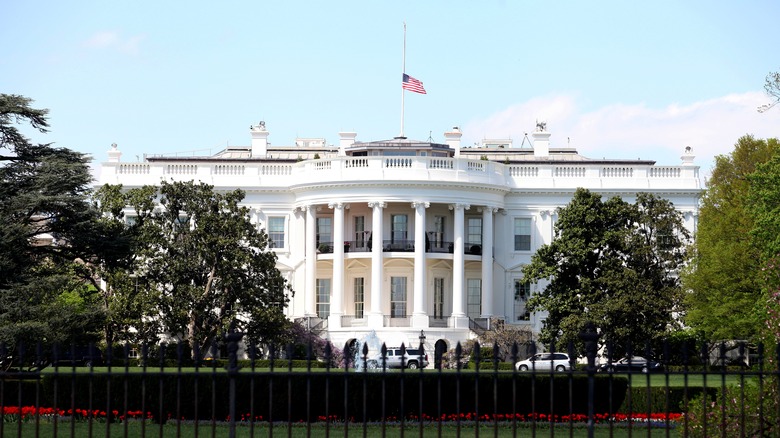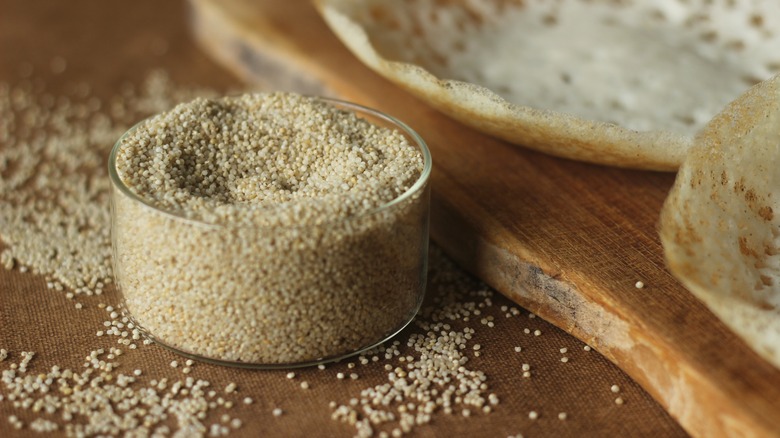Why The White House Kitchen Once Served Bird Seed To A Guest
Chefs in the White House kitchen have some of the most stressful jobs in all of cookery, responsible for tending to the palates of some of the world's most powerful people. A customer in that position is always right, and whatever they say goes. In fact, many faithful White House chefs have been made to follow some very particular requests. For example, George H. W. Bush is said to have hated broccoli so much that the vegetable was once banned from the White House. Two decades earlier, Richard Nixon banned soup from state dinners.
The White House kitchen is frequently expected to accommodate requests from visiting dignitaries as well. People Magazine recounts an evening in 1979 when President Carter welcomed Japanese Prime Minister Masayoshi Ōhira for a state dinner. Ōhira wanted to try American-style barbecue, and his request was honored with a Texas-style feast of chicken, buffalo, and suckling pig. After the dinner, The Washington Post reported Ōhira and Carter had successfully undertaken trade talks, running the headline, "Barbecue Diplomacy." As such, the White House kitchen must be able to fulfill all culinary desires. In one case, this led to the serving of a rather unique ingredient: bird seed.
What we do for our diets
Martin Mongiello has served in the kitchens of the White House and Camp David for the past six presidential administrations. He told People Magazine that a particular request from former Second Lady Tipper Gore ultimately sent him to the bird seed aisle. During the Clinton administration, Mongiello was told that Tipper Gore was on the Pritikin diet and would need accommodations. According to Healthline, the Pritikin diet, developed in the 1970s by Nathan Pritikin, entails a very low fat intake coupled with high fiber consumption and exercise. It comes with a lost list of forbidden foods, posing a challenge even to the White House.
Mongiello told People that the chefs ultimately settled on making seed bread-stuffed capon, a recipe that didn't break any of Pritikin's strict rules. Unfortunately, it called for one ingredient that the staff couldn't find in any grocery store: millet. While it's now fairly common at health food stores, Mongiello said millet was nearly impossible to come by in Washington DC in the '90s. He eventually found some at a hardware store, being sold as bird seed. However, millet may be better suited to humans, as Mongiello reports the meal was successful, and The Cornell Lab says that millet is merely filler in the eyes of birds, most of whom "shun" it.

